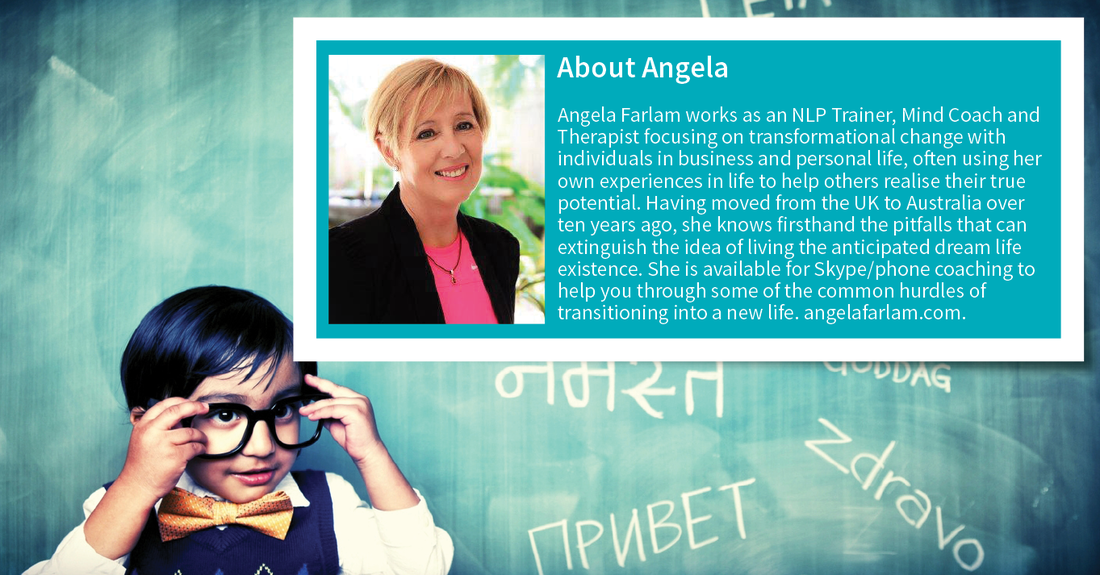“If you talk to a man in a language he understands, that goes to his head. If you talk to him in his language, that goes to his heart.” – Nelson Mandela
| AMERICAN-born linguist Noam Chomsky believes that we are born with a predisposition to learn language. Chomsky believes that language is innate, that the human brain comes into the world with a pre-determined set of rules of how language works. Environment and learning are involved, but the foundation for language comes from the womb. When we’re first born, for example, we have no idea about anything – we have no identity and have no awareness of having a body – but we quickly learn the difference between comfortable and uncomfortable (especially through the sensations of hunger, and coldness from having a damp soggy nappy), and we begin to utter sounds which lead to reactions that ultimately make us feel better – being fed, having a nappy changed, etc. So we begin to learn, experience, take on beliefs and values, and form a version of reality. |
Often to our detriment, though, somewhere around the age of four, we then learn to pay attention to our thoughts and start adding meanings to situations and events. It is also usually around this time that we begin to take on fears that can stay with us for many years (which we covered in detail last month. Read online at:
bit.ly/27xD8L8).
The number one fear I have learned through my work as a hypnotherapist, for example, is that of public speaking. This was born the day I had to stand up and speak in front of my class at school, and I felt foolish and embarrassed. These thoughts then stayed with me well into adulthood.
What’s important to remember in many situations in life is that each of us creates our own reality in our minds. What we see isn’t really what we see – instead we distort, delete and generalise to create our own version of reality.
For example, if we were sat at a pavement café drinking coffee and we witnessed an accident right in front of us, despite the fact of us both seeing the same event occur, our witness statements would be different because we both would have been paying attention to different aspects of what happened. (For a great example check out Daniel Simons & Christopher Chabris’ selective attention test on YouTube).
With us all seeing a different version of the world, then, it’s a wonder that any of us really understand each other at all – even when we do speak the same languages.
bit.ly/27xD8L8).
The number one fear I have learned through my work as a hypnotherapist, for example, is that of public speaking. This was born the day I had to stand up and speak in front of my class at school, and I felt foolish and embarrassed. These thoughts then stayed with me well into adulthood.
What’s important to remember in many situations in life is that each of us creates our own reality in our minds. What we see isn’t really what we see – instead we distort, delete and generalise to create our own version of reality.
For example, if we were sat at a pavement café drinking coffee and we witnessed an accident right in front of us, despite the fact of us both seeing the same event occur, our witness statements would be different because we both would have been paying attention to different aspects of what happened. (For a great example check out Daniel Simons & Christopher Chabris’ selective attention test on YouTube).
With us all seeing a different version of the world, then, it’s a wonder that any of us really understand each other at all – even when we do speak the same languages.
Different realities
I remember many years ago being at a Catholic Mass in the UK. I hadn’t been to a service since leaving school, but as I was about to be married in the church, and wanted to keep the priest happy, I obliged by turning up on Sunday mornings.
Something had changed in my absence, though. At some point during the middle of the first Mass I attended, everyone turned around, shook hands, and said: ‘Pleased to meet you.’
Or so I had thought.
What people in the congregation had actually said when they had joined hands was ‘peace be with you.’ This was pointed out with much delight several weeks later by a friend who had accompanied me to the church – and who couldn’t control their laughter – when they heard me utter what I thought was the correct thing to say.
Another memorable time language would catch me off guard – again to much hilarity – was when I moved to Australia 10 years ago.
In my native Yorkshire, it’s quite common to say that you’re “rooting around” when you’re looking for something. In Australia, however, this phrase has very different connotations – ‘rooting’ basically means sex. So you can imagine the looks I received when people asked me what I’d been up to and I told them, unwittingly, “you know, just rooting around.”
When mix-ups like this are common in our native languages, it’s no wonder we have reservations when it comes to speaking in languages which are alien to us, and in which we can so easily get things wrong.
But why let fear hold you back? After all, taking Chomsky’s theory into account (and knowing that the majority of human languages follow similar grammatical rules and patterns), the only thing getting in the way of learning a new language are indeed our own thoughts. And the good news is that these thoughts can be changed.
How you can be confident speaking a different language
While attending language classes to learn the basics definitely helps, the best way to learn is by attempting to speak the native tongue as much as possible.
Many people say they are afraid they will get things wrong, but they’re not, really – they’re actually afraid of how they may feel if/when this happens.
Some people spend their entire lives running away from a particular feeling. But, as we’ve explored in previous articles, the more you focus on something, the more it increases. So the more you run away from speaking a language the more the fear increases.
Fears don’t mean anything, though; they are just sensations in your body. Feel them, accept them, receive their messages and move on. You are then free to focus on what you want instead, like seeing the happy faces of the people you are speaking to. Over time these small rewards will build a wall of confidence which will block out the fear, allowing you to grow more familiar with the language. And everybody likes what’s familiar.
Remember, today is your day – it will never come again and it’s yours to do with as you wish. So take a few deep breaths and, if you have been afraid of speaking Thai, English, German, French or any other foreign language, realise that you don’t have to speak that particular language, and you are not forced to speak it, instead you are speaking that language because it is your choice to do so, and it always has been your choice. Don’t let anyone, or anything, take your day from you.
If you are unable to apply the above understanding or, have been increasingly low in your mood, book an appointment with a specialist who can give you help and advice.
I am also available for Skype/phone coaching to use my professional and personal experience to help guide you through some of the common hurdles of transitioning into a new life.



 RSS Feed
RSS Feed
















